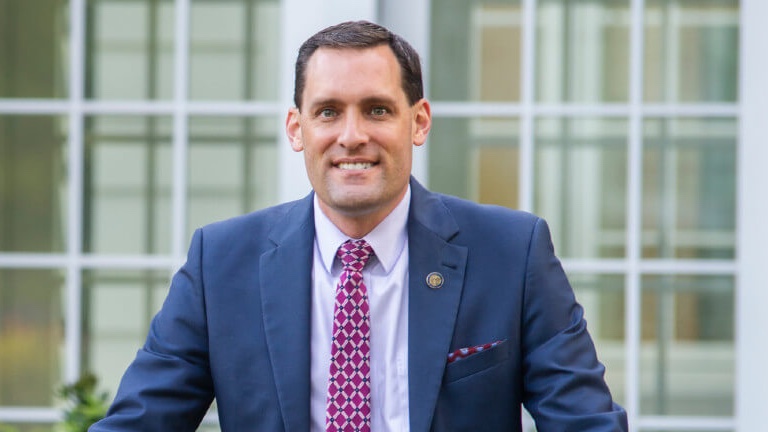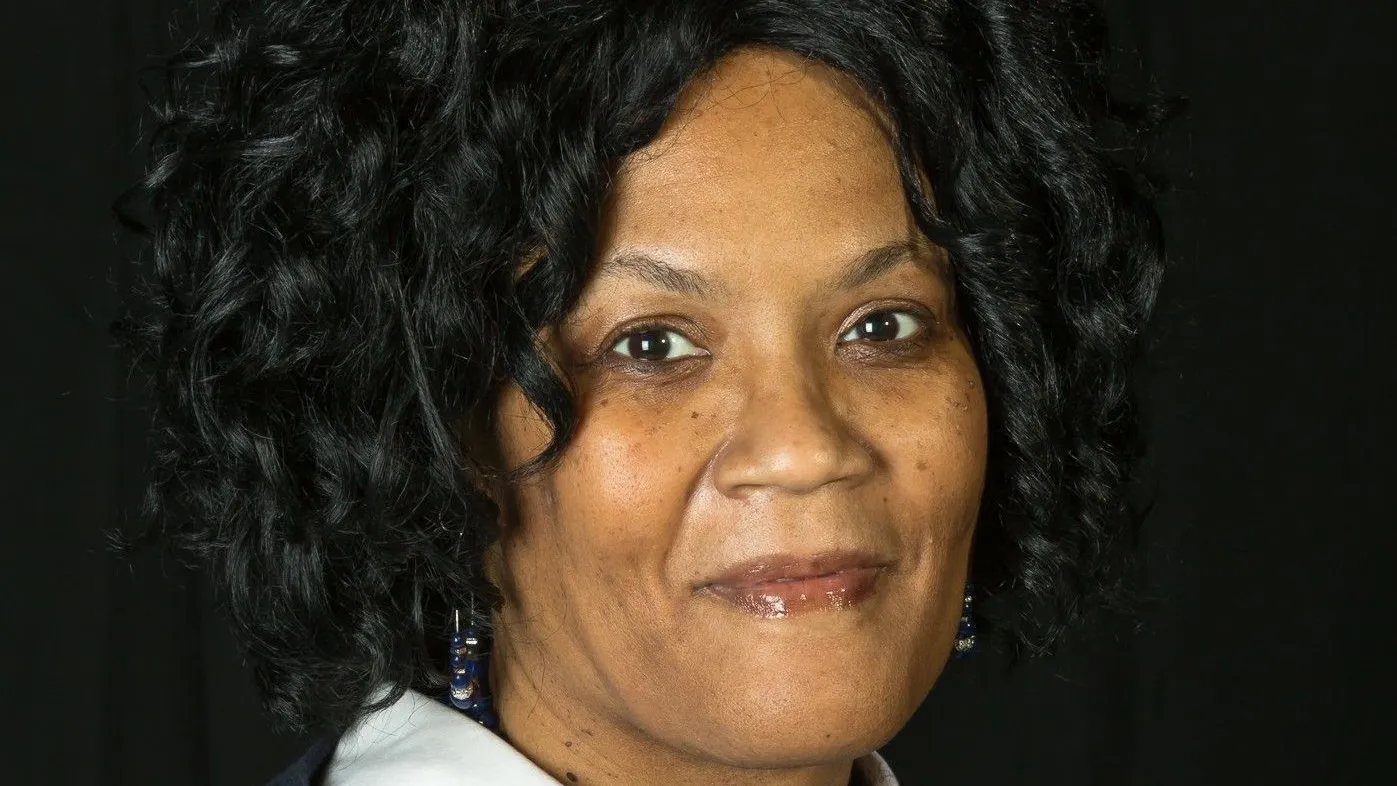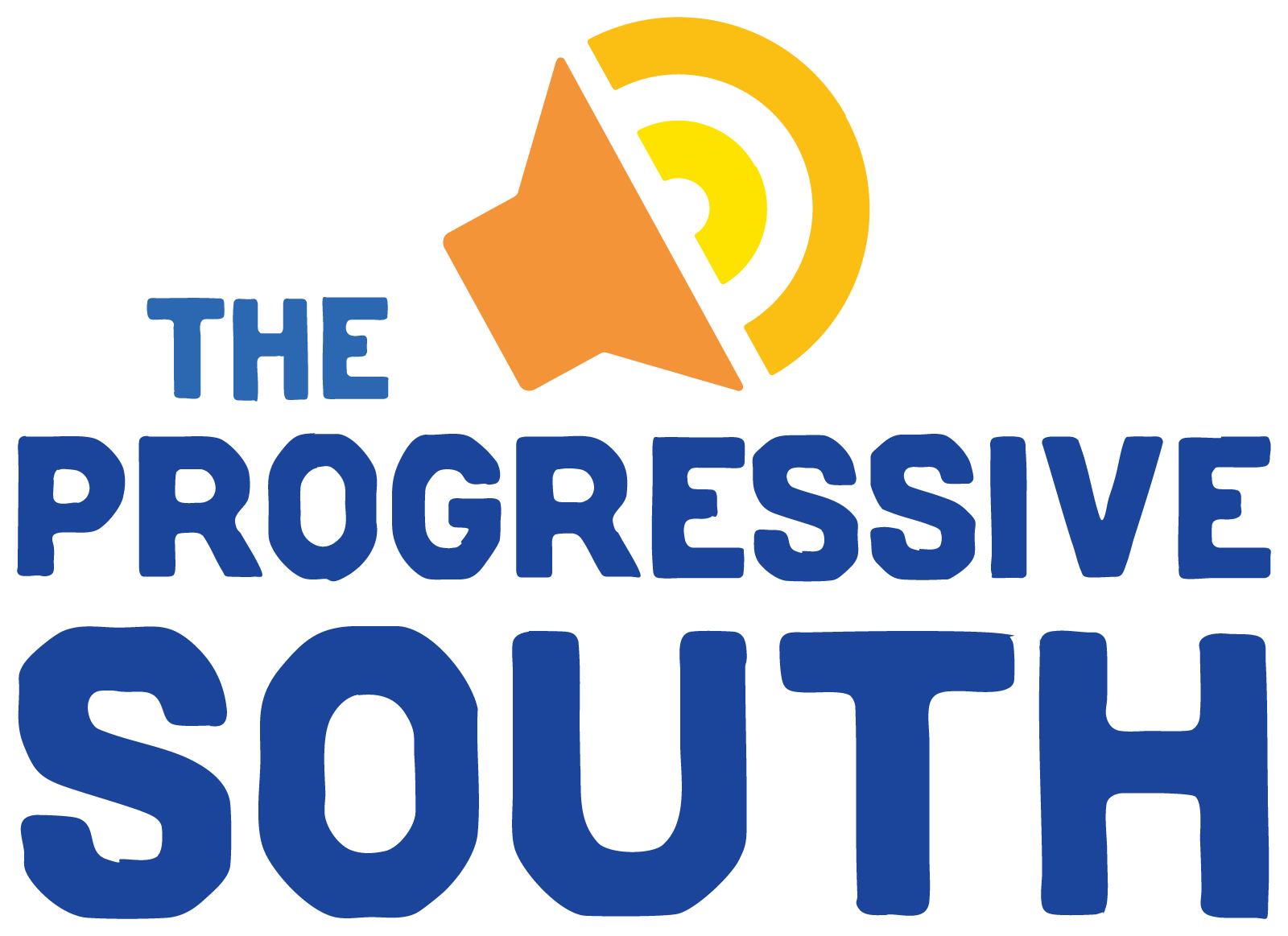
Welcome to the Progressive South! We are a nonprofit media platform for progressive voices and values in the Southern U.S. We aim to provide news about goings-on in these states and amplify the important work of people and organizations across the region. You can find more information at the “About” tab, and check out our always-growing list of useful links at “Resources.” Our first project is our podcast:

A weekly program featuring a regional news roundup and interviews with people doing good work across the South. Plus, a little arts and culture. Available here as well as on Spotify, Apple and YouTube. Subscribe, like and share!
-
The ‘DEI’ Canard in Southern Legislatures
(Adapted from a portion of this week’s HEADLIGHTS podcast.)
Many Southern state legislatures have ramped up attacks on diversity efforts over the past five years, as they have become favorite targets of conservative commentators and culture warriors. These attacks prefigured and in many ways laid the groundwork for the broader assault on DEI currently being waged at the federal level by President Donald Trump and his appointees.
The 2025 legislative session has brought a fresh round of anti-DEI bills across the South, many of which share a central irony — or perhaps it’s more accurate to just call it cynicism. In seeking to limit efforts to foster diversity and reduce socioeconomic disparities, they are using the language of the civil rights movement to attack its core achievements.
Most conservative-dominated states in the South have seen a range of bills in recent years aimed at public schools, universities and state agencies, all alleging in various ways that any efforts to recognize or remedy the legacies of legally enforced discrimination in the South — or in some cases even to discuss that history — amount to forms of discrimination themselves.
This year’s statehouse sessions have been no different, although not every anti-DEI bill passed.
In Georgia, for example, the state Senate approved a bill that would have placed a raft of restrictions on how schools talk about race and gender and American history. Among other things, it would have forbidden public schools and universities to promote or maintain “any programs or activities that advocate for diversity, equity, and inclusion.”
As examples for colleges and universities, it restricted any institutional support for a laundry list of terms conservative lawmakers apparently find offensive, including:
“unconscious or implicit bias, cultural appropriation, allyship, gender ideology or theory, microaggressions, group marginalization, Antiracism, systemic oppression, social justice, intersectionality, neopronouns, heteronormativity, disparate impact, racial privilege, sexual privilege, or any similar or related formulation of these concepts.”
In other words, the state where Martin Luther King Jr. was born into a legal system of racial oppression was proposing to make it legally hazardous for universities to talk about systemic racial oppression.
But after clearing the Senate in the final days of the session, the bill stalled in the state House, which was scrambling to finish its own priorities. It could well return next year, of course.
Another anti-DEI bill is moving through the Louisiana Legislature, hitting on some of the same themes as the Georgia bill. It would restrict any hiring preferences in state agencies based on race, sex, gender identity or sexual orientation.
It would also restrict state universities from mandating course content dealing with certain topics — again, including a list of conservative rhetorical bugbears:
“Instructional content that relates to critical race theory, white fragility, white guilt, systemic racism, institutional racism, anti-racism, systemic bias, implicit bias, intersectionality, gender identity, allyship, race-based reparations, or race-based privilege.”
The bill does have language protecting individual faculty members’ rights to shape their own curriculum and choose their own instructional materials.
It also says that it will still be legal to teach about U.S. historical events including slavery, the forced removal of Native Americans and Japanese-American internment during the 2nd World War.
Still, as in Georgia, it is remarkable to see a state like Louisiana take issue with concepts like systemic or institutional racism.
New Orleans was one of the national centers of human trafficking in enslaved people up until the Civil War. It was also home to Homer Plessy, famous as the losing plaintiff in the case of Plessy vs. Ferguson, in which the U.S. Supreme Court gave its blessing to Jim Crow regimes of racial segregation. It is hard to think of more obvious examples of systemic and institutional racism.
That bill is up for a vote this week in the Louisiana State Senate.
In Tennessee, meanwhile, the state’s General Assembly passed a set of bills in April aiming to “dismantle DEI” in state and local governments and education systems.
Tennessee had already passed versions of curricular restrictions in previous years, forbidding the teaching of what it calls “divisive concepts” around race and gender.
This year’s bills focused more specifically on hiring practices, prohibiting the consideration of race, gender or other personal characteristics in employment decisions. They also forbid state or local governments or schools from maintaining departments or programs to promote diversity, equity and inclusion.
The Texas Legislature is considering a bill much like Tennessee’s, although it is limited in scope to the state’s public schools. It forbids the consideration of race, sex or ethnicity in hiring decisions, or the assigning of diversity, equity and inclusion duties to school employees.
That bill passed the Texas Senate and is awaiting a vote in the state House.
If all of these bills sound fairly similar, so does the rhetoric surrounding them.
The Republican legislators who have sponsored the bills uniformly depict them not as attacks on diversity but as protection against state-mandated discrimination.
In Georgia, state Senator Max Burns said that his anti-DEI legislation should be embraced by people who want to see racial equality.
According to the Georgia Recorder, on the Senate floor Burns said, “DEI is the antithesis of equality. If you believe in equality, if you believe in equal opportunity, this bill does not strip you of that. It enhances it.”
The sponsor of the Louisiana bill, state Representative Emily Chenevert of Baton Rouge, responded to criticism of her bill from other lawmakers by saying, “This is not divisive. This is protecting every Louisianian. This is about equality for all.”
And in Tennessee, state Representative Aron Maberry said his “Dismantle DEI” bills were similar to past efforts to fight workplace prejudices. “If discrimination in the past was wrong, and I agree, it was; it is, then discrimination today is wrong,” he said.
And here’s where the rhetoric around all of these bills becomes tricky. Like Maberry, the bills’ sponsors — and conservative anti-DEI pundits and activists in general — suggest either explicitly or implicitly that they are fighting against some kind of widespread patterns of discrimination under the guise of DEI programs.
They allege that diversity, equity and inclusion efforts — which can include everything from workplace anti-discrimination training to job fairs that aim to reach traditionally underrepresented groups — actually end up promoting a different kind of bigotry.
They rarely say it explicitly, but what they mean is that majority groups or groups that have traditionally been overrepresented in government workplaces or in leadership positions — which is to say white people in general, and white men in particular, and especially straight white men — are now themselves victims of discrimination.
The problem with that assertion, and perhaps the reason it is rarely stated quite so directly, is that there is very little evidence to support it.
The reality is that any kind of discrimination in hiring on the basis of race, ethnicity or gender is already illegal throughout the United States — and has been since the passage of the Civil Rights Act of 1964.
That act, of course, was one of the crowning achievements of the Civil Rights Movement — and was fiercely opposed by white Southern conservatives. The same political demographic that is now passing their own versions of anti-discrimination laws, but with a very different class of alleged victims in mind.
Like everyone else in the country, white men are already protected against employment discrimination on the basis of race or gender. Like everyone else, if they believe they have been discriminated against, they can file complaints with the federal Equal Employment Opportunity Commission.
And some of them do! Just … not that many.
A large study in 2019 found that about 25 percent of Black women said they had experienced some form of workplace discrimination, compared to 18 percent of Black men and 16 percent of white women. Only 11 percent of white men said they had.
Meanwhile, a 2023 study of U.S. Fortune 500 companies found that 59 percent of company executives were white men, even though they make up only about 30 percent of the total U.S. population.
20 percent of Fortune 500 executives were white women, 14 percent were men of color, and just 6 percent were women of color.
The breakdown of company board members and people in corporate governance followed nearly identical patterns: Over and over in the American workforce, white men remain overrepresented in top-tier positions and underrepresented in reporting incidents of being discriminated against.
It may not surprise you to know that another place white men are overrepresented is among Republican state legislators in the South.
In Georgia, for example, 96 percent of the Republicans in the General Assembly are white, and 85 percent are men.
In Tennessee, 86 percent of the GOP supermajority in the Legislature are white men.
In other words, these bills alleging discrimination against white men are being written and passed by Republican majorities that are overwhelmingly — and disproportionately — made up of white men.
That’s why the political minority parties in Southern state houses — which also include most of their legislators who are women and people of color — have tended to see the anti-DEI movement’s true aims as perpetuating racial inequities rather than fighting them.
They allege that what the bills are really trying to do is create chilling effects that will make people in state agencies and schools think twice about hiring anyone who isn’t a white man, and afraid to discuss any kind of racial or gender disparities.
In Georgia, Democratic Senate Minority Leader Harold Jones the 2nd, who is Black, accused the state’s Republicans of wanting to “take Georgia backwards — backwards to days when people did not have full rights.”
In Louisiana, State Representative Edmond Jordan said the state’s anti-DEI legislation was “an anti-Black bill,” and his fellow Democratic State Representative Candace Newell of New Orleans said, “This is the most racially oppressive piece of legislation that I think I’ve seen.”
Jordan and Newell are both Black. So is Tennessee state Representative Antonio Parkinson, a Democrat from Memphis, who said during debate on the “Dismantle DEI” bills that Republicans had created a false narrative around DEI.
“It is simply to show you that we exist,” he said. “It removes the invisible cloak from veterans, disabled individuals, Black people, women and others. We exist.”
And that is maybe the most irrational thing about the wave of attacks on diversity in the South — most of these states are pretty diverse. Non-White residents make up one-third or more of the population in 9 out of 12 Southern states.
In Texas, non-Hispanic white people make up only an estimated 39 percent of the total state population. In Georgia, it’s 49 percent, and in Louisiana it’s 56 percent. Even Tennessee, one of the whiter states in the country, has a nonwhite population of nearly 30 percent.
And like the U.S. overall, we’re getting progressively less white. Every Southern state has become more racially and ethnically diverse over the past 30 years. Whatever else the anti-DEI movement accomplishes, it doesn’t seem likely to change that.
— Jesse Fox Mayshark
-
Headlights Ep. 5: A ‘Pragmatic Progressive’ in North Carolina

Conservative legislators in the South have been attacking diversity programs for years, long before President Trump made a national priority of assailing “DEI.” This week, we look at some of this year’s anti-DEI bills in Georgia, Louisiana, Tennessee and Texas — and why their allegations of anti-white discrimination are mostly bunk.
This week’s conversation spotlights North Carolina state Sen. Graig Meyer, a “pragmatic progressive” who represents the Chapel Hill area. He talked about how his background in social work and education led him to seek public office; how he seeks to be effective as a member of a legislative minority; and why he helped start a new North Carolina media company just a few years ago.
And in our arts and culture segment, we look at a Kentucky quilt show with a unique focus: the Black jockeys who won the country’s most famous horse race in the late 1800s, before the Jim Crow era forced them out of the Derby.
Show Notes:
U.S. Fortune 500 Corporate Governance Report
Prevalence of Workplace Discrimination
https://pmc.ncbi.nlm.nih.gov/articles/PMC6612926
Texas anti-DEI bill
https://capitol.texas.gov/BillLookup/Text.aspx?LegSess=89R&Bill=SB12
Georgia anti-DEI bill
Louisiana anti-DEI bill
Tennessee anti-DEI bill
Graig Meyer
https://www.ncleg.gov/Members/Biography/s/437
Beacon Media
Kentucky Derby Black jockeys quilt show
https://www.lpm.org/news/2025-04-17/quilts-show-black-kentucky-derby-jockeys-in-full-color-and-scale
-
Headlights Ep. 4: A Second Southern ‘Redemption’?

When Reconstruction ended in the South in 1876, white political leaders moved swiftly to establish what they called a “redemption” — the re-establishment of white supremacist rule. Now, 60 years after the Civil Rights Act, white conservative political leaders are again moving to roll back advances toward racial and sexual equality. Are we in a second “redemption”?
We talk about that with Princeton historian Kevin Kruse, who grew up in the South and has studied its political currents in the aftermath of the Civil Rights Movement. He also discusses the lessons — and hopes — provided by the history of resistance and liberation movements in the South.
In our news roundup, we look at the explosion of crypto mines and massive AI data centers across the South — often with the enthusiastic support of state and local officials. One operation in Texas is poised to become the first 1-gigwatt crypto mine, using enough energy to power a city of 250,000 homes.
And our arts and culture segment checks in on this weekend’s Florida Folk Festival — a celebration of the complex state’s cultural diversity.
-
Headlights Ep. 3: A Union Veteran

Immigration sweeps are picking up steam in states across the South, often with the help of state and local agencies. In this week’s roundup, we look at an unprecedented enforcement action in Florida called Operation Tidal Wave, which led to the arrest of more than 1,000 immigrants, along with operations in Tennessee and along the Interstate 10 corridor through Louisiana and Mississippi.
The conversation this week is with union leader Vonda McDaniel (pictured), president of the Central Labor Council of Nashville and Middle Tennessee. She talks about the connections between labor rights and all civil rights, the importance of the Black church in social justice work, and why football Sundays are the most union days of all.
Plus: an appreciation of Percival Everett, whose book James won the Pulitzer Prize for Fiction last week. -
Headlights Ep. 2: A Richmond Road Trip

Our second episode brings us to our first road trip: Richmond, Va., where Jesse talks to local organizer Quinton Robbins (pictured) with the grassroots progressive group Richmond For All. They have had success both electing candidates to local office and pushing back against big-dollar development plans that threatened local communities.
Our weekly news roundup from across the South looks at a fight over library books in Arkansas; the rocky tenure of Louisiana’s top environmental official; and an attempt to block undocumented children from Tennessee public schools.
In the arts and culture segment, Jesse checks in on the first-ever Biscuits & Banjos Festival in North Carolina, organized by musician and scholar Rhiannon Giddens. -
Headlights Ep. 1: Welcome to Headlights!

Welcome to Headlights! In our first episode, Jesse Mayshark — the founder and publisher of The Progressive South — introduces the podcast and project. What do we mean by “progressive”? What do we mean by “South”? And who are we, anyway? Then he takes to the streets of Knoxville, Tennessee, to hear from some of the thousands who came out earlier this month to protest the actions of the billionaires at the top of the federal government — including a Navy veteran, health care workers, union members and more. And in an arts & culture segment, he notes a milestone for Florida native Ethel Cain — the first openly transgender artist to hit the top 10 of Billboard’s album chart.
About The Progressive South
The Progressive South is a nonprofit media platform for progressive voices and values in the Southern U.S. We want to help inform and connect people across the South doing good work and fighting good fights. We are based in Knoxville, Tennessee, at the headwaters of the Tennessee River.
